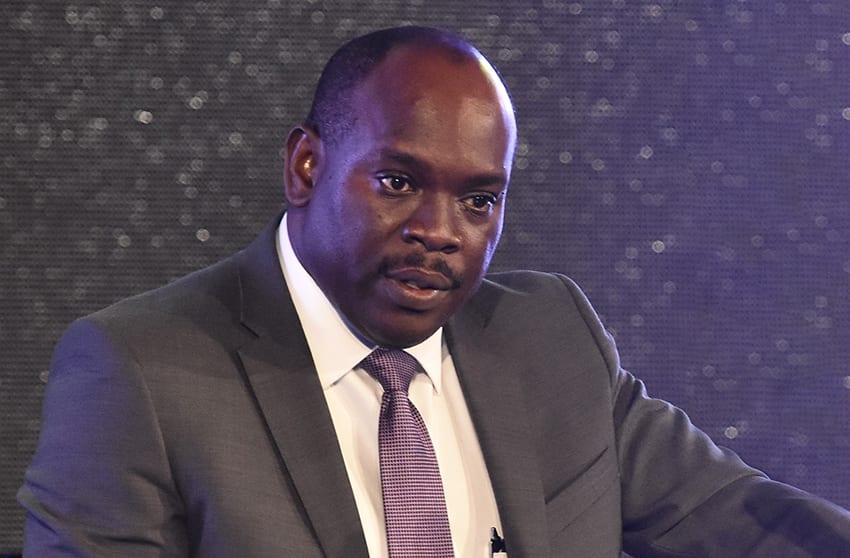After about a quarter of a century of enjoying a 15 per cent discount on new gasoline and diesel vehicles, consumers must now dig deeper into their pockets to buy the same fossil-fuelled car.
And spokesman for the Barbados Automobile Dealers Association, Mark Hamilton says it’s hurting average would-be car owners, claiming that they prefer an internal combustion engine (ICE) vehicle.
The rebate on gasoline and diesel vehicles was given by the Owen Arthur administration to stem a boom in sales of reconditioned cars. But Minister of Finance Ryan Straughn said on Thursday that the decision to remove the rebate was in keeping with the government’s energy policy to become 100 per cent carbon neutral by 2030.
“In July 2022, I announced in a Ministerial Statement in Parliament that effective April 1, 2024, the 15 per cent rebate on new gasoline and diesel vehicles will end given government’s policy of moving the country toward alternative fuel vehicles. This policy is in line with the Excise and VAT holiday currently in place for EVs and other alternative fueled vehicles,” Straughn told Barbados TODAY. “All new vehicles before April 1, 2024 enjoyed the 15 per cent rebate, meaning new cars were sold 15 per cent cheaper.”
But Hamilton is adamant that the removal of the rebate will have a significant impact that was already beginning to be felt by the new-car dealers. He sought to put this development into perspective.
“The government introduced a 15 per cent rebate on the manufacturer-appointed dealers because of the investment they were putting in on the ground – parts, training, special tooling, the infrastructural investment and so on. So, that is a 15 per cent rebate that has been in place for a very long time. And that 15 per cent has been removed, which effectively means that the 15 per cent excise tax… there has been a 15 per cent excise tax increase on ICE vehicles,” he told Barbados TODAY.
“And the results of that adjustment, or increase in excise tax, has resulted in a cost increase of somewhere, in my estimation, of between $6 000 and $20 000 at retail, to ICE vehicles in the market.”
He said the move would have a significant impact, particularly on what he termed entry-level vehicles – non-hybrid, fossil-fuel automobiles –, because the ability of the manufacturers to supply the Caribbean market with a wide range of hybrid or electric vehicles is limited.
“So, if you were to survey the market and look at the vehicles that are available between $55 000 and $70 000 or $80 000, the majority of those are going to be ICE. So, in my view, and I think this is shared by the majority of dealers, it is going to be hurting the entry-level purchaser,” Hamilton explained.
The new-car dealer added: “We already know that hybrids, by and large, and particularly electric vehicles, have much higher first costs and are already quite pricey. And we also know that the range of products, although it has been expanding over the last 18 to 24 months, is still relatively limited.
“The fossil-based entry-level vehicles that are non-hybrid are going to be impacted significantly by this change. They are the vehicles that are generally purchased by the average man in the street, so to speak.”
Anyone looking for a quality high-end car for under $100 000 now has to pay $12 000 more, and a vehicle which may retail at $55 000 would now cost close to $60 000, he said.
The lower-end vehicle which his company sells, for example, would cost an additional $5 000 to $6 000 while the price tag for the higher-end goes up from there. Hamilton said the true impact on demand for the ICE vehicles may only be known after several months in the future.
“The challenge in the market is that there are not a lot of options out there,” he stressed. “The availability of a broader range of hybrids and electric vehicles from a variety of manufacturers that release vehicles into this region is limited at this point.”
He said that even though there are more cars on the road now compared to two years ago, there is still a limit to what is available to the customer.
“There are some customers who are still wary of the new technology and don’t want a hybrid and don’t want an EV. Some customers would say: ‘I would look at that in another four or five years and see where we are.’ But they want a normal vehicle…. But obviously, that is contrary to the mindset of the government relative to the 2030 energy policy,” Hamilton said.
Kelvin Daniel, a director of one of the leading used car dealers, said the adjustment to the rebate would not affect the reconditioned car market.
“That only affects new dealers as far as I understand. Only the new-car dealers were eligible for that rebate. Removing the rebate would not necessarily affect used car dealers since we always paid [the excise tax],” he told Barbados TODAY.
emmanueljoseph@barbadostoday.bb




